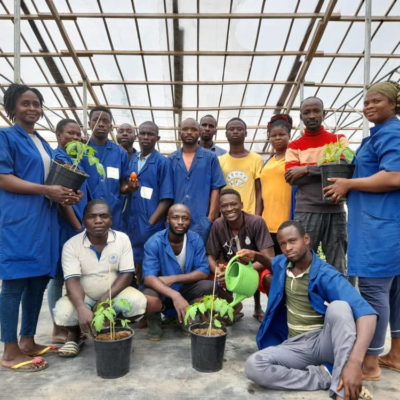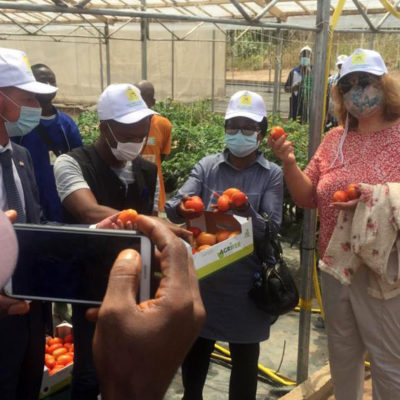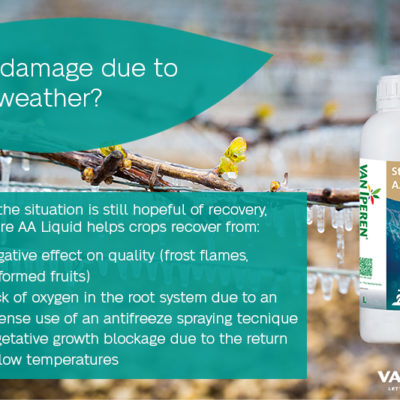As part of our new projects in 2021, we are happy to announce our participation in HortIvoire, a soil-less vegetable production training program open to young farmers and women to improve yields and quality and diversify the types of crops in Côte d’Ivoire.
Currently, agriculture in Côte d’Ivoire is based on “cash farming” -meaning cocoa, hevea, palm oil, and coffee for export. This situation makes the agricultural sector very dependant on the trade market-facing speculation. The income of the family unit is not as stable as it was 20 years ago. For all these reasons, the government is looking for alternatives to solve this gap. As part of the solution, the administration wants to focus on two aspects:
- To encourage agricultural entrepreneurship to diversify the types of crops.
- To empower women to enter the labor market and earn a decent income.
HortIvoire is fully in line with this goal offering practical training to this target population and giving them a concrete qualification to start working rapidly. In addition, HortIvoire contributes to a more sustainable food chain by producing locally and making other crops available for locals.
Knowing that efforts are more effective when done in collaboration with partners, Van Iperen International works side by side with Agrifer its partner in Côte d’Ivoire who is the initiator of the project, RijkZwaan, Resilience, INFPA and supported by the Dutch Embassy through subsidies of RVO (Rijksdienst voor Ondernemend Nederland) on developing this new initiative, HortIvoire.
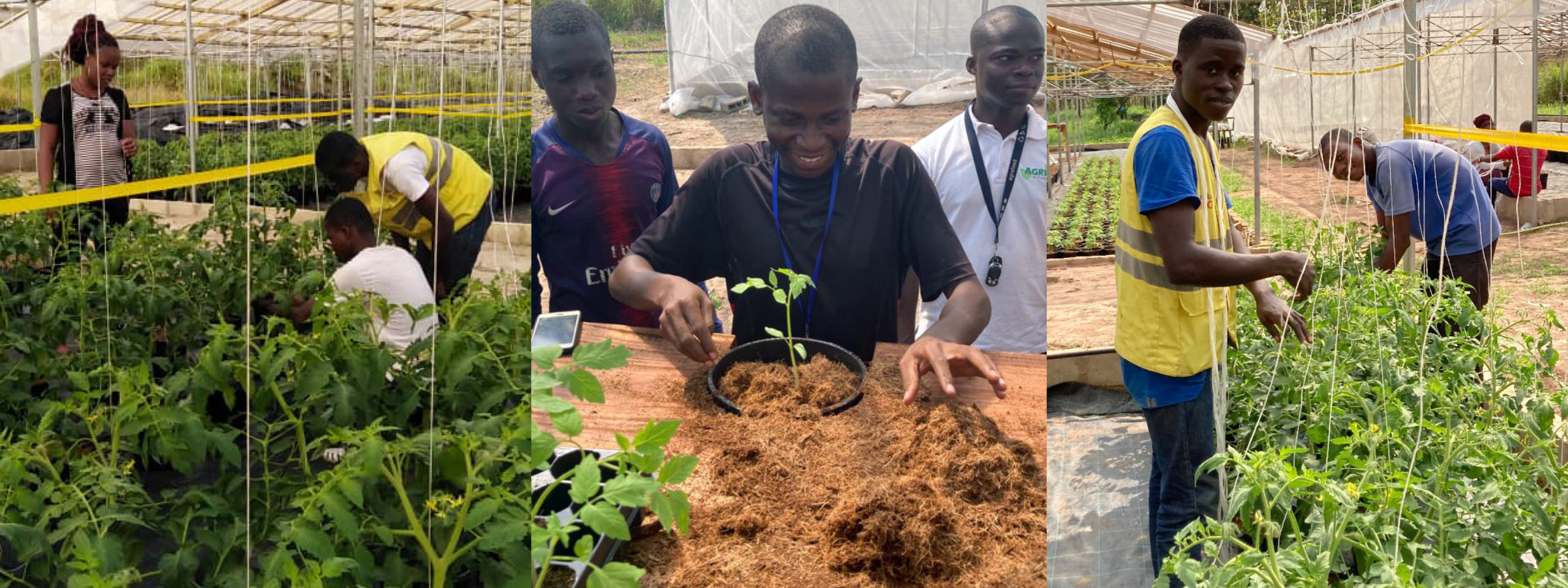
HortIvoire: the concept
In particular, HortIvoire focuses on the sustainable use of agricultural inputs like substrate, specialty fertilizers, quality seeds, and crop protection products, involving youth, women, and entrepreneurs. The program intends to support social employment among vulnerable sections of society on the one hand, and the creation of a competitive industrial and productive base.
The implementation modality for these actions focuses on the establishment of two practical training and demonstration centers for vegetable production, one in Yamoussoukro and one in Korhogo. In these centers, attendees will follow an education program consisting of:
- A combination of production and in-house training called 'Youth Incubator'. Selected youth will proceed by one or more intensive 6-months training courses. In this way, the trainee will get the necessary technical and business skills to operate an independent economically viable production unit successfully.
- Training and monitoring production services to existing smallholder vegetable producers. This includes field trainings and monitoring of the production, vegetable demonstrations, and field days at the two training centers.
Main goals of the project
Through the training and demonstration centers, the consortium expects to achieve the following targets. Over 4 years (2020-2023), 320 young growers will receive training as professional vegetable agronomists. By doing so, they will acquire valuable practice and knowledge to run a vegetable farm by themselves or be employed by a company.
On top of that, we expect to organize field days for around 4.000 farmers at one of the training centers. In close cooperation with farmers, participants can then gain new experience on improved inputs and agricultural practices.
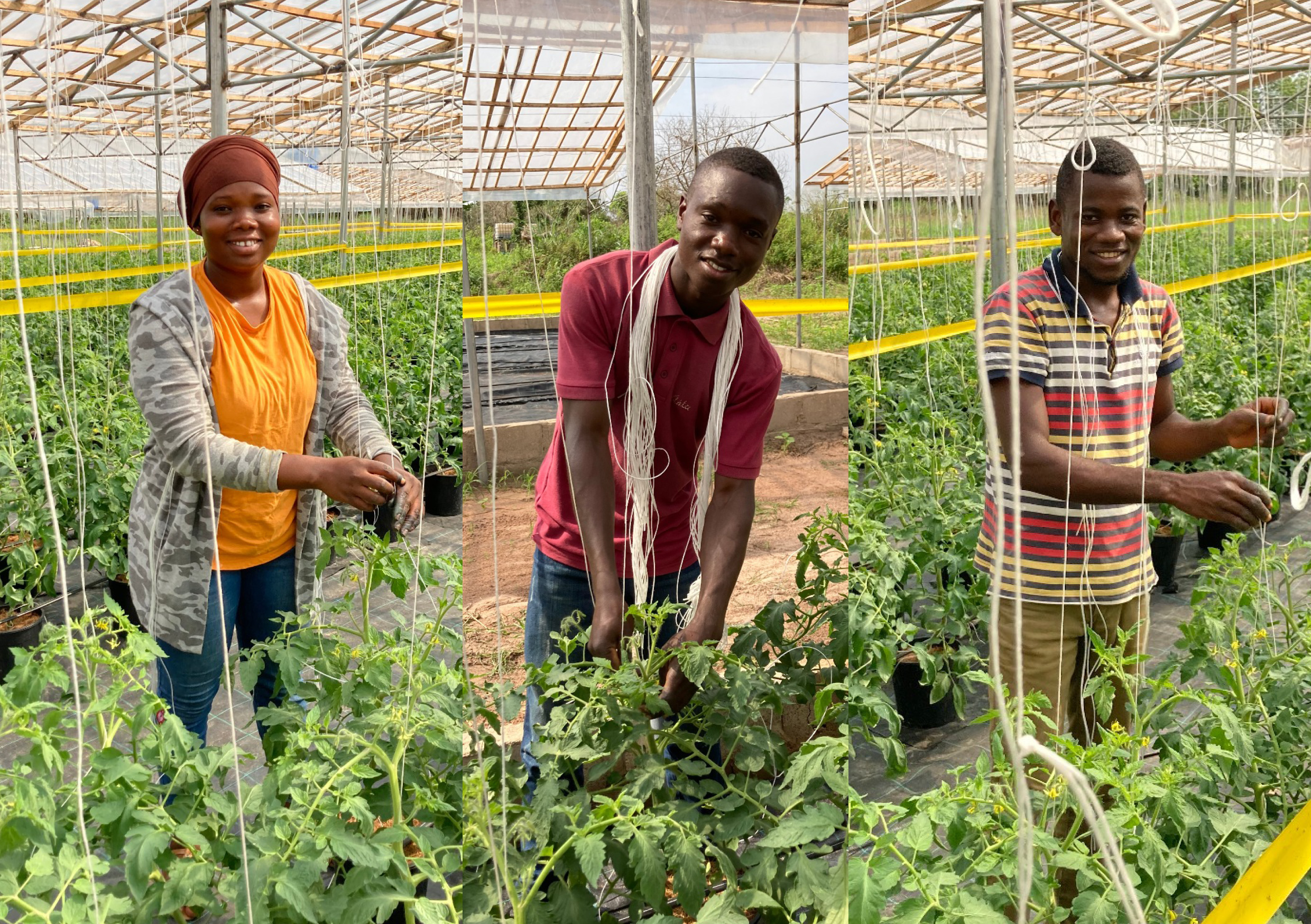
Van Iperen International's role
Together with other strategic partners, Van Iperen International takes part in this ambitious initiative and contributes through training and demonstration activities. Within the consortium, we will:
- Test new fertilizers and innovative solutions at the two training centers.
- Organize demonstration and field day activities by our staff with free inputs.
- Provide expertise and training activities for the trainees.
The educational and training program
In order to achieve the above targets, the project will implement the following activities during the project period (2020-2023):
- The training centers will consist of state of the art training facilities, including modern classrooms, practical training fields (including protected cultivation using the substrate, irrigation systems, and superior inputs), and dormitories.
- Training of young growers will take place twice a year in batches of 15-20 students. Trainees will both study and work at the farm and be housed at the dormitory. Trainees receive intensive classroom and on-the-job-training on topics like variety selection, seedling raising, soil fertility and water management, and integrated pest management.
- Demonstrations and field days will be organized twice a year, portraying new products and agricultural practices. Each field day will attract at least 250 farmers, stimulating sales and brand promotion for the participating companies.
- The two demonstration centers will have close ties with major wholesalers and retailers in urban markets (like Canaan Land) for selling quality vegetables from the farm. To this end, professional packhouse and cooling facilities will be installed at both training centers.
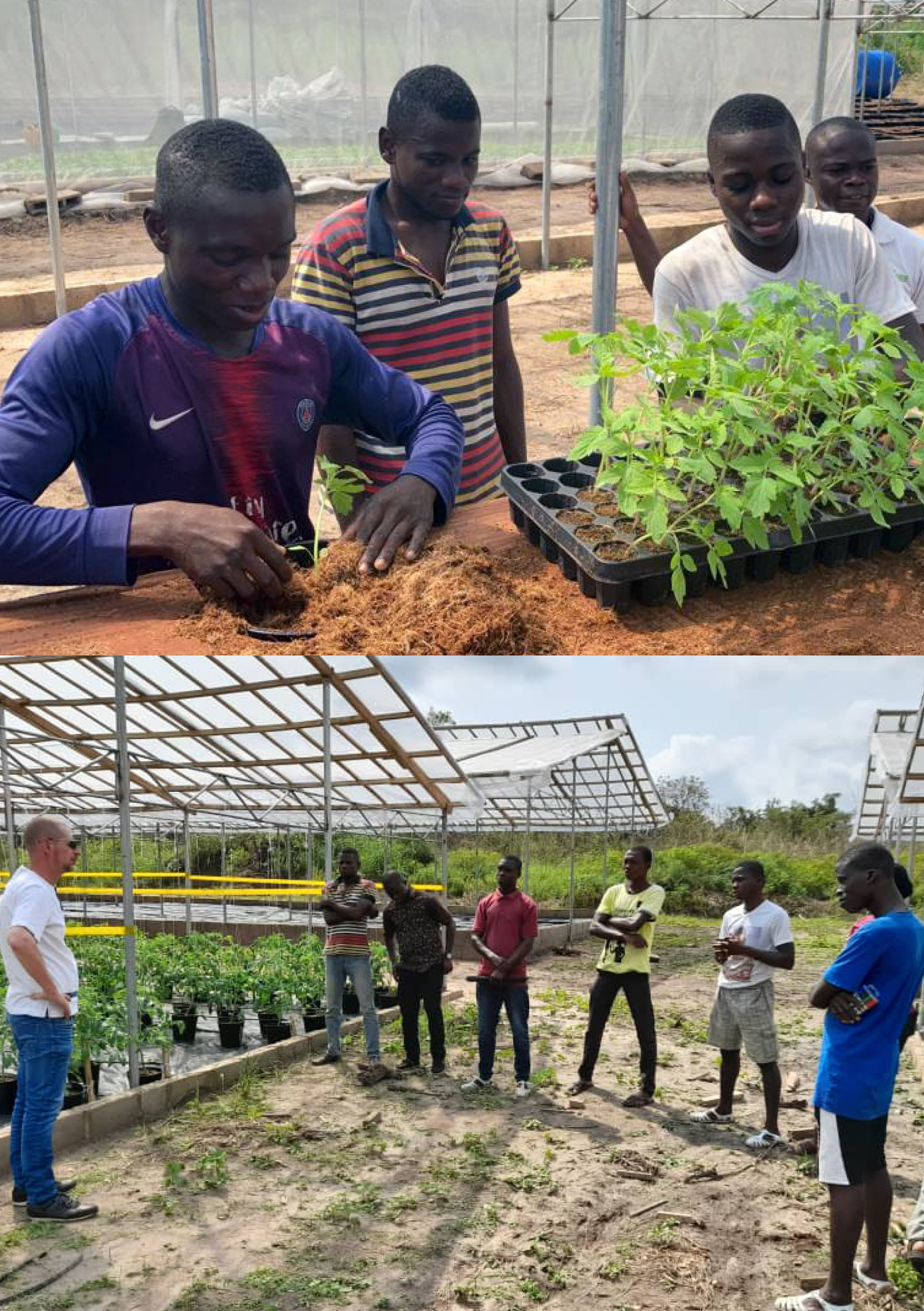
The two demonstration centers can be run financially self-sustainable, thanks to a cost-recovery system. There are three main revenue streams for the production-training centers:
- The first revenue stream is the income from the sales of vegetable products. Trainees will not pay for the training (only an entrance fee) but contribute in kind in production. Sales of these high-quality yields to local markets in Korhogo, Yamoussoukro, and Abidjan will generate sufficient profit to sustain the training activities.
- Fees from supplied training and monitoring services to producers and producers’ organizations. The ambition is to give the very best training course for sustainable vegetable production in the country.
- Finally, the training and demonstration centers will promote the inputs of the participating companies. Profits/commissions made on these inputs will be (partly) plowed back into the training center, especially to further sustain the demonstration and field day activities (which will be organized on a fee basis in the future).
Initially, however, a co-financing grant of the Netherlands government is required to contribute to the initial establishment costs of the training centers. The shift towards intensive vegetable production, involving an investment of capital by clients and suppliers and an increased collaboration between parties within the value chain, is considered as a major change in the vegetable sector. This involves awareness-raising, innovation, risk-taking measures, and, last but not least, sharing of vision and lessons learned between stakeholders. This justifies the participation of the Dutch government, as an experienced partner in private-led innovations in high-risk areas.
Timeline - What's going on?
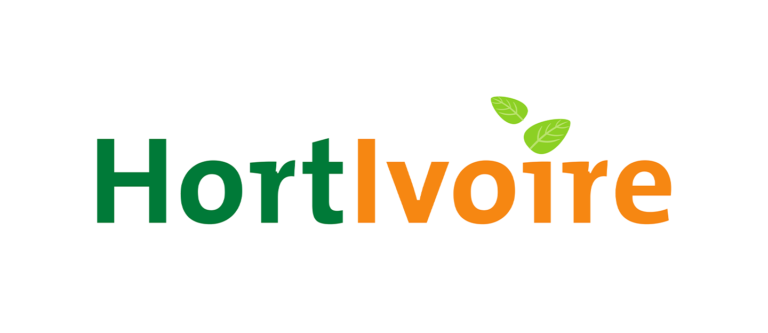
Although HortIvoire started on June 1st, 2020, it was officially launched in earlier July during a virtual kick-off meeting between the main players in the project and the Ambassador of the Netherlands in Abidjan, Ms. Yvette Daoud. On that date, the training center was being built and the first students were expected to be trained later in 2020.
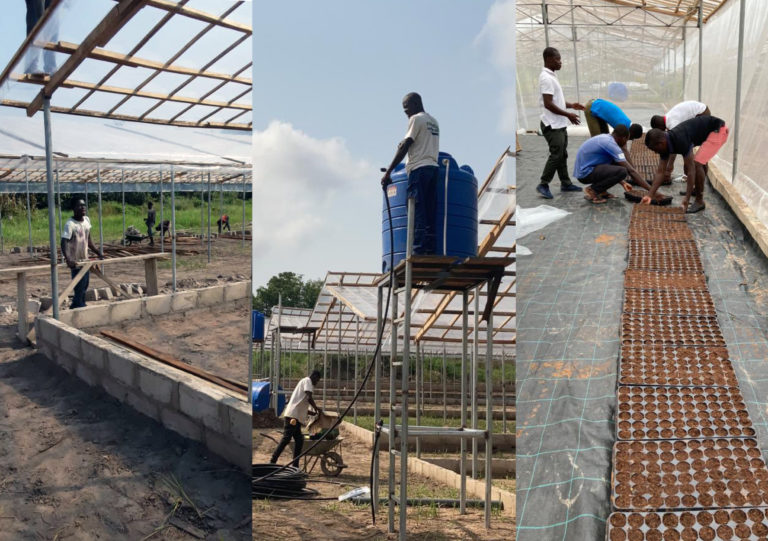
In September 2020, we started with preparing the land on which the twenty greenhouses will be built. Pillars made of iron were placed in concrete to make the structure more stable.
A few weeks later, a total of 10 greenhouses were covered with a horticultural UV-film for a long-lasting service.
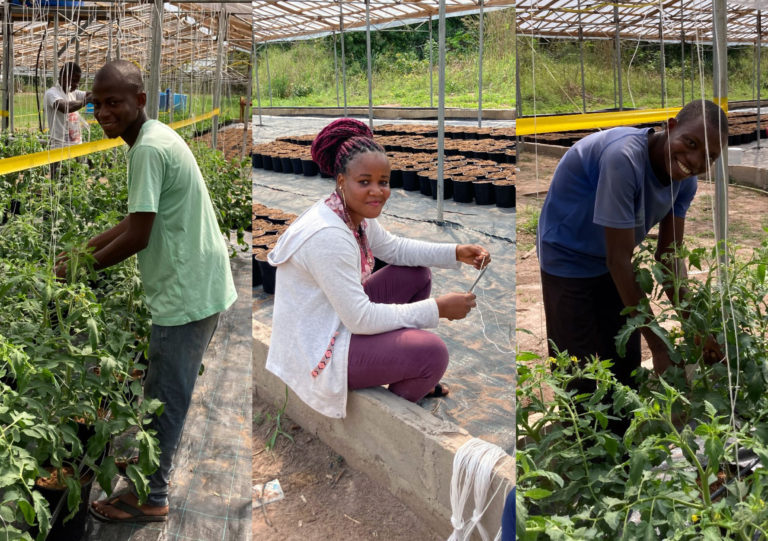
By December 2020, the first trainees started the program in the greenhouses. A very exciting day for them and all parties involved. The hard work and initial efforts were finally paid off.
In the first weeks of training, participants began this learning journey putting into practice early lessons with the preparation of the soil and plantation process.
By being part of HortIvoire, Van Iperen International wants to support the development of young people by encouraging their skills and talents to enter the world of work with security. Facilitating access to training and education opportunities will help increase the employability of young people and improve their future earnings. In this way, we can contribute to promoting social employment and local economy initiatives in the long-run.
